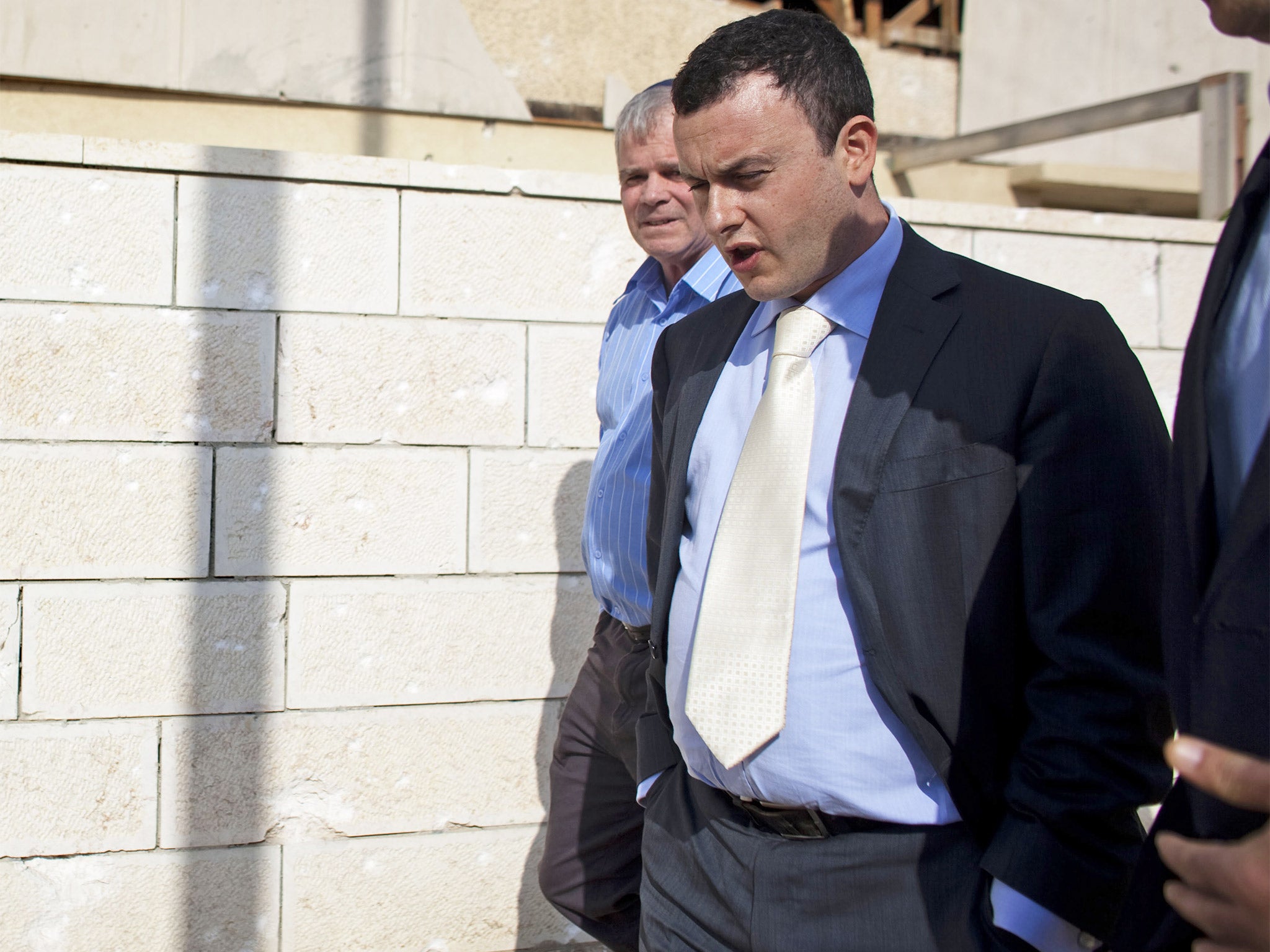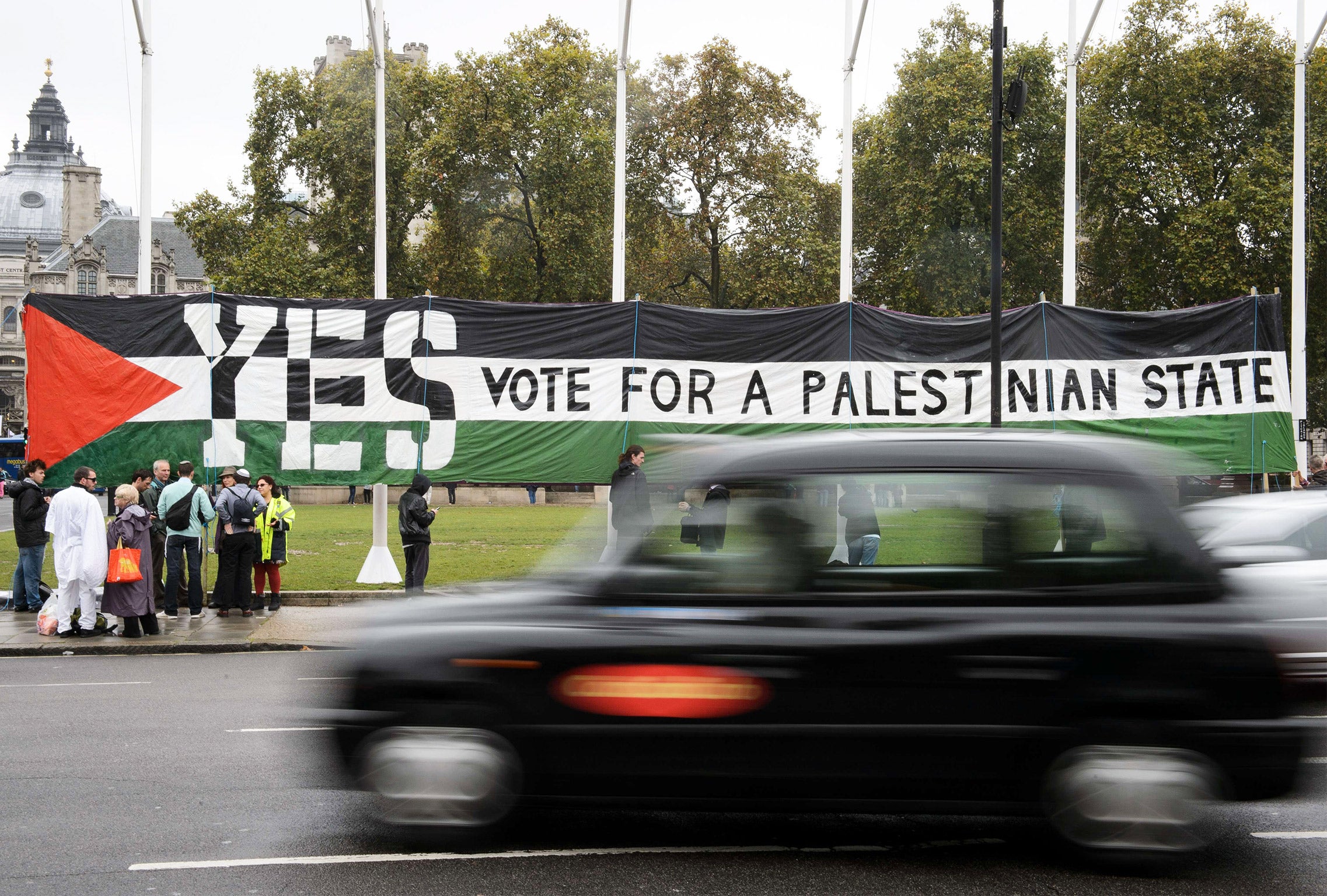Israel losing support in UK because of settlement building and Gaza offensive, ambassador warns
Former Tory minister also describes Israel's actions as akin to 'apartheid'

Your support helps us to tell the story
From reproductive rights to climate change to Big Tech, The Independent is on the ground when the story is developing. Whether it's investigating the financials of Elon Musk's pro-Trump PAC or producing our latest documentary, 'The A Word', which shines a light on the American women fighting for reproductive rights, we know how important it is to parse out the facts from the messaging.
At such a critical moment in US history, we need reporters on the ground. Your donation allows us to keep sending journalists to speak to both sides of the story.
The Independent is trusted by Americans across the entire political spectrum. And unlike many other quality news outlets, we choose not to lock Americans out of our reporting and analysis with paywalls. We believe quality journalism should be available to everyone, paid for by those who can afford it.
Your support makes all the difference.Britain’s ambassador to Israel has warned that the Jewish state is losing support in the UK, blaming the summer offensive in Gaza and increased settlement construction in the Occupied West Bank. His remarks came as a former Conservative minister described the situation in one Palestinian city as “apartheid”.
The ambassador, Matthew Gould, issued the warning hours after MPs backed a motion to recognise the state of Palestine, albeit in a non-binding vote. Speaking to Israel Radio, the ambassador said the vote in the Commons showed that public sentiment was moving away from Israel.
“Separate from the narrow question of recognition, I am concerned in the long run about the shift in public opinion in the UK and beyond towards Israel,” he said. “Israel lost support after this summer’s conflict, and after the series of announcements on settlements. This parliamentary vote is a sign of the way the wind is blowing, and will continue to blow without any progress towards peace.”
A number of MPs who spoke in the House of Commons debate ahead of the vote on Monday evening explained that their position on the Israeli-Palestinian question had shifted, before voting in favour of the motion.
Sir Alan Duncan, a former minister in the Department for International Development, used a speech to the Royal United Services Institute in London yesterday to attack the world’s unwillingness to “rock the boat” by criticising Israel. He also said the situation in the West Bank city of Hebron, long a scene of violent and bitter confrontation between Israelis and Palestinians, could now be considered to be under a form of apartheid. “It is a poor reflection on the international community, and on the United States in particular, that Israel persists with the building of settlements largely because it believes that it can get away with doing so,” he said.
“Whatever their other arguments, whatever their deliberate attempts to divert attention from the issue, the continuing gradual annexation by Israel of its neighbour’s land is an ever-deepening stain on the face of the globe.
“Occupation, annexation, illegality, negligence, complicity: this is a wicked cocktail which brings shame to the government of Israel. It would appear that on the West Bank the rule of international law has been shelved. One should not use the word ‘apartheid’ lightly, but as a description of Hebron it is both accurate and undeniable.”

The government of Benjamin Netanyahu has increased settlement construction this year in the face of international condemnation. In September, Israel announced the construction of its biggest settlement in 30 years, drawing Palestinian condemnation and even a rebuke from the US. Almost 1,000 acres of land in the Etzion Jewish settlement bloc near Bethlehem were declared “state land, on the instructions of the political echelon” by the military-run Civil Administration.
Israel Radio said at the time that the step was taken in response to the kidnapping and killing of three Jewish teenagers in the area in June.
If British MPs had hopes their vote on Monday would force a change of policy in the Holy Land, they were quickly dashed. In a statement issued soon after the vote, the Israeli embassy in London said that the result – 274 in favour and 12 against – was “troubling”.
“Premature international recognition sends a troubling message to the Palestinian leadership that they can evade the tough choices that both sides have to make, and actually undermines the chances to reach a real peace. Recognition of a Palestinian state should be the result of a successful conclusion of direct peace talks between Israel and the Palestinian Authority.”
Critics of the Israeli government’s position would point out that several aborted peace process have failed to reach such a negotiated agreement. This view was echoed by a number of MPs on Monday evening.

Sir Edward Leigh, a Conservative and long-time supporter of Israel, said: “I know we will be accused of making a gesture today… Virtually everybody who has spoken – not just lefties waving placards in Trafalgar square, but virtually every Conservative MP – has said that now is the time to recognise the justice of the Palestinians’ case.”
The leader of the Israeli Labour Party, Isaac Herzog, said that the Commons vote represented “another resounding failure by Netanyahu”, who has failed “to realise that the huge political storm is approaching”.
Those on the far right of the Israeli political spectrum dismissed the Commons vote out of hand. Dani Dayan, a former chairman of the Yesha Council – the body that represents Jewish settlers – took to Twitter to attack the vote. “274 MPs go to bed with their politically correct conscience cleansed. 364 MPs stayed in bed refusing to play this silly game.”
Join our commenting forum
Join thought-provoking conversations, follow other Independent readers and see their replies
Comments